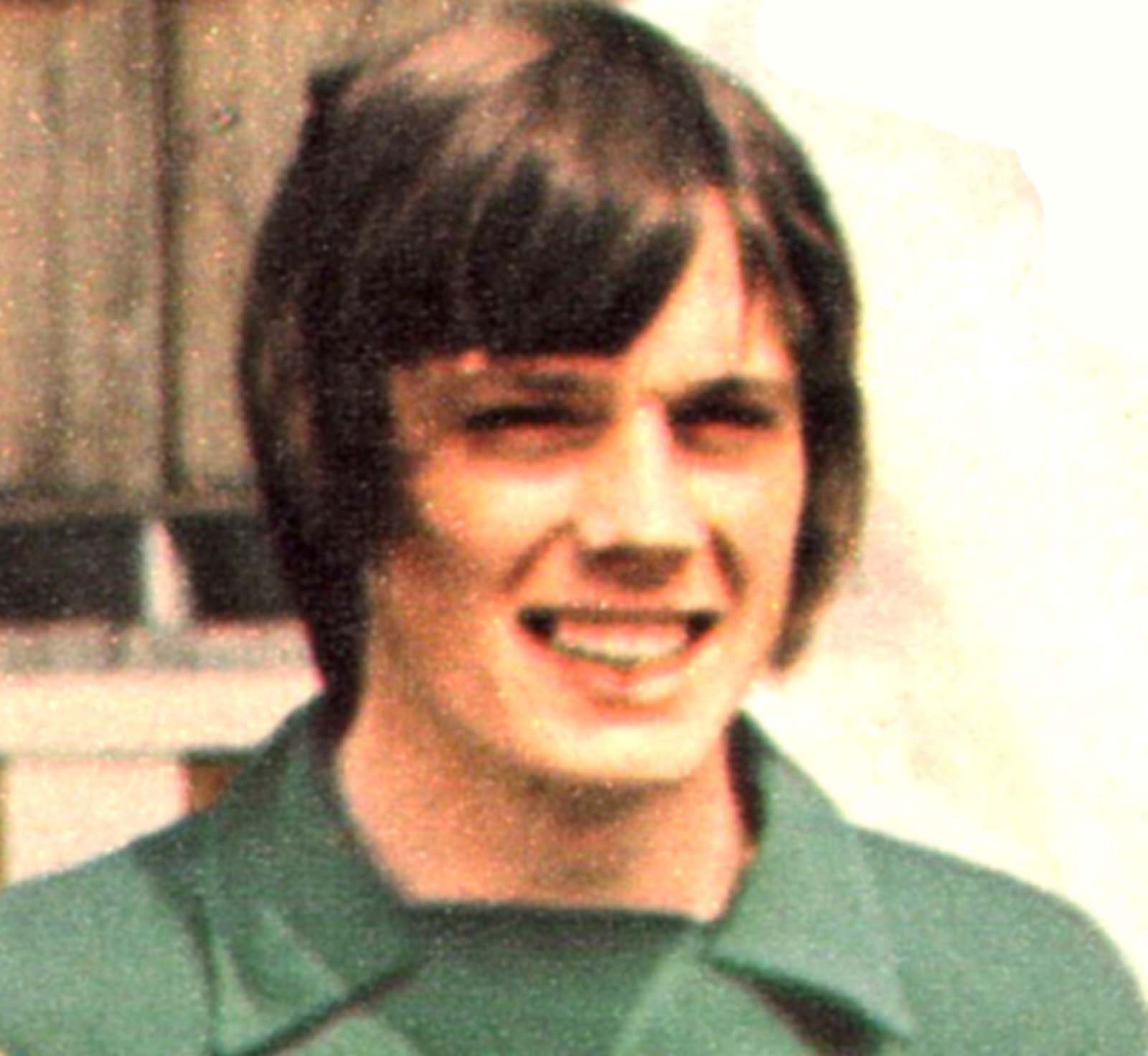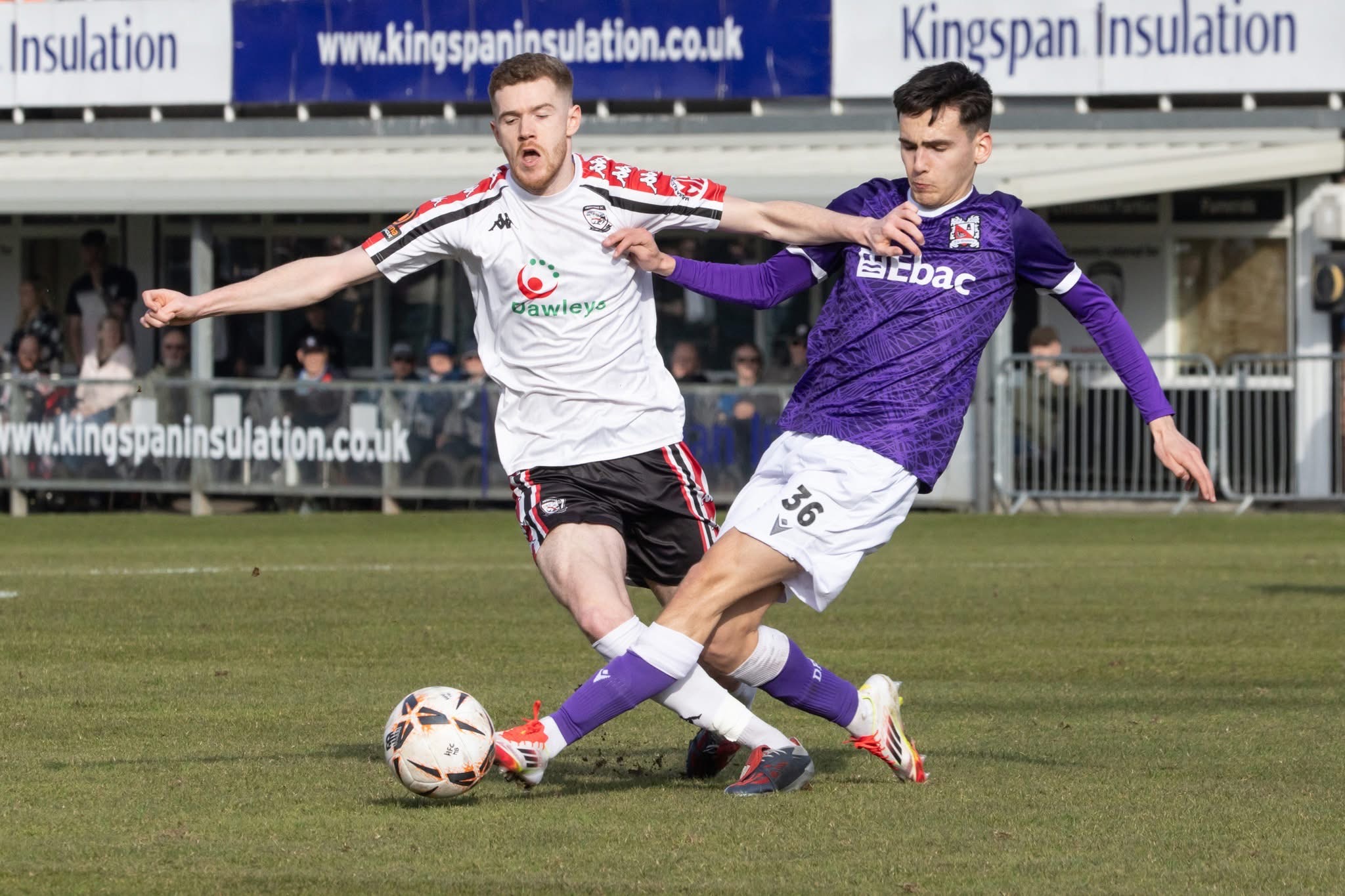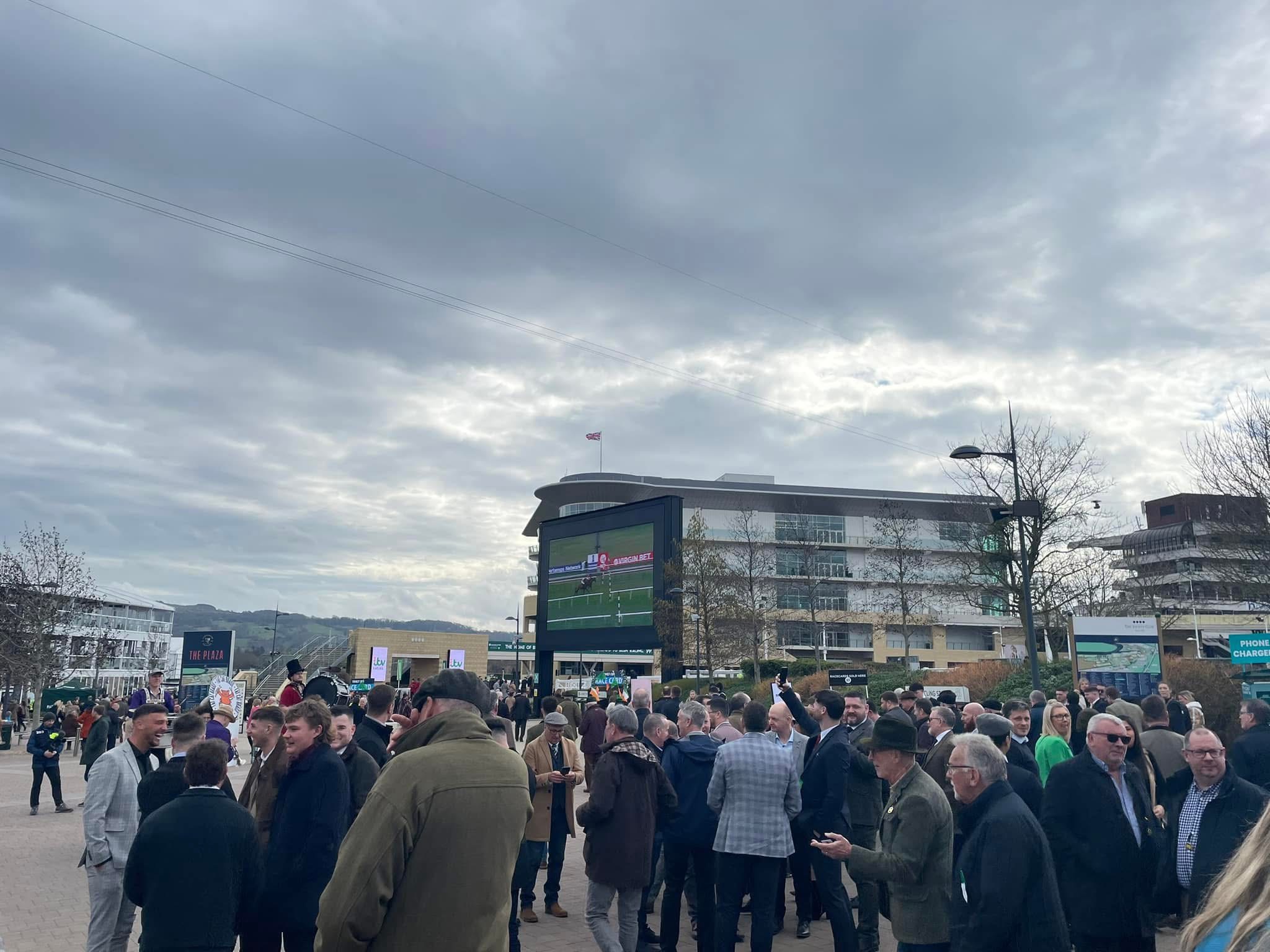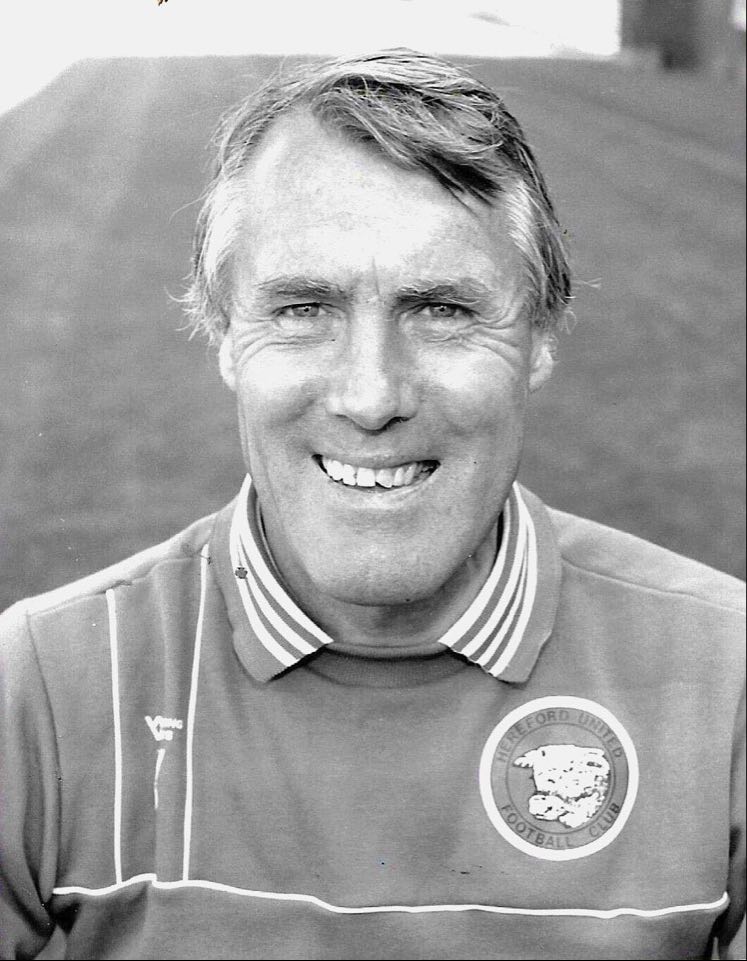After starting this interview series in November. I always wanted to speak to David Icke, a lot of people are not aware that Icke played for Hereford United from 1971-1973 and was Hereford United’s most successful goalkeeper. He won two promotions in his two seasons at Edgar Street, in terms of goals conceded per games played he had the best ratio of any goalkeeper who ever played for the club. I contacted him via his website last week and to my surprise he replied that he would do it, we arranged a Skype call for Saturday 30th January 2021.
Matt Healey continues the series
David Icke was born in Leicester on the 29th April 1952. He started his football career at Coventry City, but never played a first team game. He joined Hereford United in the summer of 1971. The manager at Edgar Street then was the late great John Charles. I asked Icke how the move to Hereford happened.
Icke told me “I wanted to be a footballer from an early age. I wanted to play for my hometown club Leicester City but they had Gordon Banks and Peter Shilton on the books at the time (Two of England’s greatest ever goalkeepers), so I thought I better go somewhere else. I joined Coventry City and we got to the final of the FA Youth Cup. My left knee started to swell up for no reason and I had six months out of the game, I came back but was still having problems with my joints. I got a medical opinion and I was diagnosed with arthritis. I was told I needed to give up the full time game or I could be in a wheelchair in my 30’s. I was only 19 and needed an income so I had to retire from professional football and I started working in a travel agency for a guy called John Camkin, who was also a former journalist”
Icke continues “John Camkin knew the Hereford United manager John Charles and we had a chat. I thought if I joined a part time club that I might get away with the arthritis not affecting me. I ended up having a trial and met John Charles for the first time who was one of the nicest guys I had ever met. He would take shots at me in training and I remember thinking this guy would have been a hell of a player in his peak”
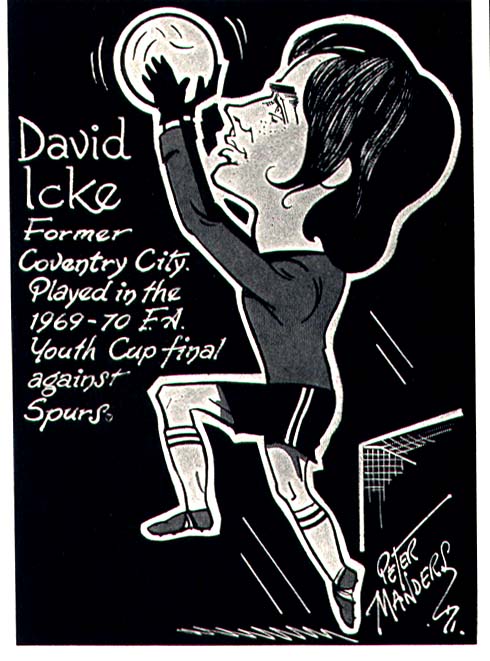
Icke tells me “John Charles was a brilliant guy, I have to laugh though as he sold me a car once that was like one of those car’s in the circus, the ones with everything falling off it, it was a Riley and it went to scrap, so cheers John!!!
Looking back he was too nice to be a manager, we were playing Worcester City and the team talk he said to us was “come on we’re gonna win”, then he paused “well we’ve not gotta win but it would be nice”. I played against him later in my career when we played Merthyr in the Welsh Cup, we drew the initial game at Edgar Street, but Merthyr needed the money so the replay was switched to Edgar Street, we won that. I loved him to bits”

Hereford club historian Ron Parrott tells me Icke played the first 11 league games of the 1971-1972 Southern League season and only conceded 9 goals, but then got dropped “That’s what happened, you’ve done your research, when I joined the club Fred Potter was the first team goalkeeper. I played a number of half games in the pre season alongside Fred, me one half and Fred the other. John Charles decided I would start the season, I did well. Being honest the club back then was quite clicky and I did feel like an outsider, we played at Worcester City and I jumped for a ball and got a knee in the hip, but after some treatment I felt ok, I took the free kick and the muscle in the hip ripped. I had to go off. I was out for about a month and then Fred came back in to the side”
Icke continues “John Charles had left as manager and the club bought in Peter Isaac and Joe Wade as caretakers. Colin Addison would then take charge. When I was fit a month or so later Fred kept his place. Back then we didn’t have a reserve team, so if you weren’t in the 1st team you didn’t play. Unless Fred made errors or got injured I wouldn’t get back in. There were a couple of unofficial reserve games towards the end, but that was it, it was a bizarre situation, I went to every game to watch, plus needed to be ready to cover incase something happened to Fred, but back then there was only one sub and that was an outfield player. I watched every game from the stands, or dugout if Colin (Addison) would let me”
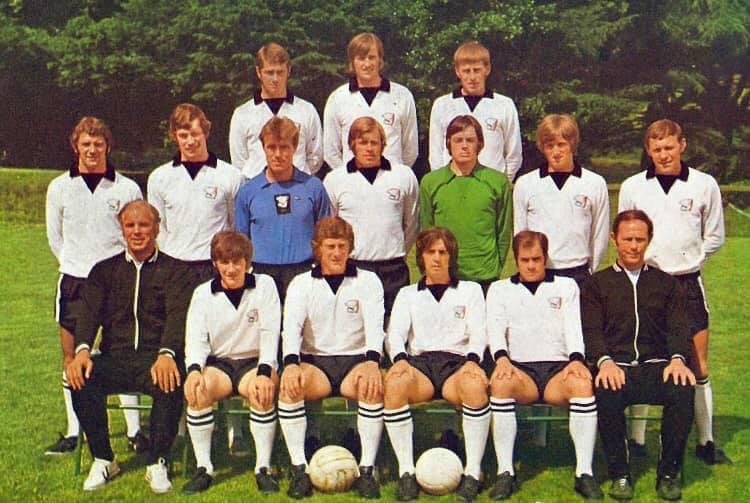
I asked Icke about his memories of the wonderful 1971-1972 FA Cup run. “I remember going to watch us at St James Park against Newcastle in the 3rd round, it got called off a couple of times, everyone remembers the game at Edgar Street, for me though the best performance was at Newcastle we got a 2-2 draw, They were what is now a Premier League club, to defend like that away from home was fantastic, our two goals were brilliant, we had a centre forward called Brian Owen, he would chase shadows for you and put a lot of pressure on defenders, he was like a racehorse, but nobody could accuse him of being Ronaldo, his 2nd touch was usually a tackle, he opened the scoring in about 17 seconds, the ball came to him, he was on the right hand side of the penalty area and he hit a superb shot like a missile. I will never forget the silence of the 40,000 or so Newcastle fans when it went into the back of the net”
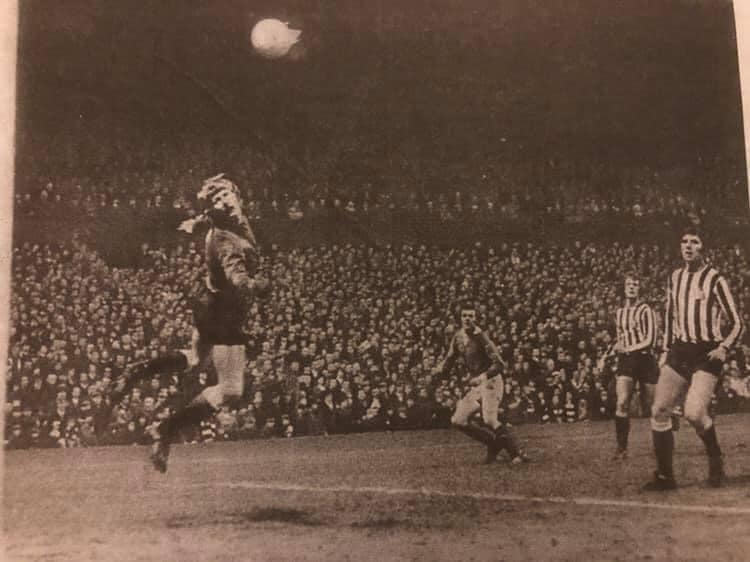
Newcastle came back to lead 2-1, I think one of the goals was a penalty, then Colin Addison smacks an absolute screamer into the corner to make it 2-2, two brilliant goals we scored, then we got a replay at Edgar Street which everyone remembers”
I tell Icke that there is sadly no footage of the Newcastle away game, only around a dozen or so photographs remain “I can still see the goals in my mind, and remember the silence of the Geordies, this little non league club from down south had gone 1-0 up within seconds, to be fair we were all in shock and silent at the time too”
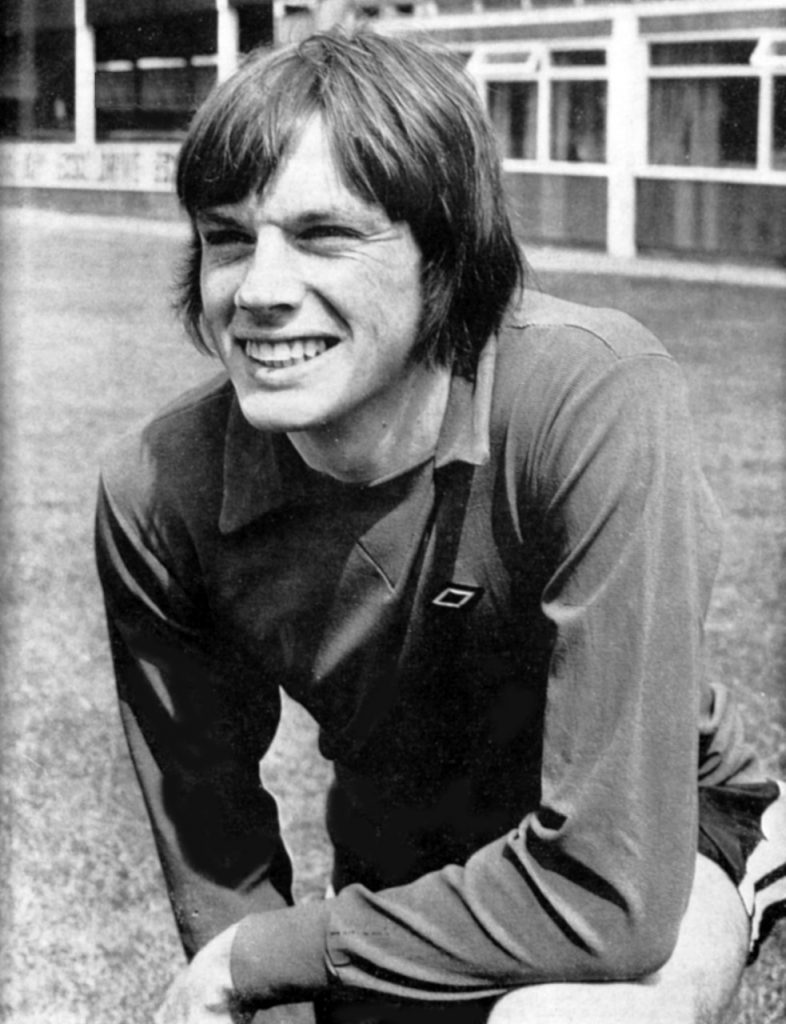
Hereford United would face Newcastle United on the 5th February 1972 in an FA Cup 3rd round replay at Edgar Street.
Icke tells me “I loved Ricky George, he was a real character, I’ve worked with him on talksport, I remember watching the Grand National on television, they bought out the owner and it was Ricky George, I was at Heathrow airport checking in to a flight to the USA and I saw him there going off on a celebration holiday, he was a substitute that day and came on to score the winner, Ronnie Radford scored the equaliser which we all remember. Ronnie had a good shot, I faced him in training, he could hit the ball, he was very skinny, there was more meat on a butchers pencil than Ronnie Radford”
Icke continues “We were a goal down and on this energy sapping mud heap, Ronnie Radford somehow put it all together and he’s hit the ball from about 35 yards, it sat up perfectly, I was right behind it in the stands, you could see it going into the top corner, that day also launched the career of John Motson, we had a pre match meal at a restaurant and I met John for the first time when we were eating, he was a young broadcaster who had just started his career, we had a quick chat before the game, Hereford United became a star that day, and so did John Motson as the commentary gave him a boost for his career” Hereford would win the game 2-1.
Next up was West Ham at Edgar Street on the 9th February in the 4th round, “We hit the post right at the end when it was 0-0, another inch or so they would have been knocked out and another giantkilling, but we would have another crack at them in the replay”
The 4th round replay was played on the 14th February 1972
“It was during the three day week and played on an afternoon, the club had made so much money from the games, so we stayed overnight, we were at the Belgravia Hotel which was in the same square as the USA embassy back then, I was from a council estate in Leicester, the hotel was so flash with shops everywhere, the Hereford board of directors decided to give everyone at the club a day out to the game, that included Bill Groves the groundsman, he was a real Herefordshire bloke, with the accent and everything”
Icke tells me “I was sitting next to Bill on a massive table, waiting for the meal, the waiter’s had dinner jackets and this one waiter was a real snob and looking down his nose at these people from the suburbs, he puts the meal in front of Bill and the waiter walked off, Bill shouted “Hey excuse me”, the waiter stopped in mid stride, Bill shouted “Excuse me have you got any Daddies”, the waiter stopped and swiveled and said in this posh voice “Diddies, what’s Diddies” , Bill shouted “Daddies, Daddies brown sauce”, the waiter was stunned and we all laughed”
Hereford would play the game in an early afternoon kick off “The next day we went to the ground, we were late, the traffic was unbelievable, we had a police escort to get to Upton park and only made it about 30 minutes before kick off, it wasn’t great preparation, I was sat on the bench, not as sub, but as a spectator, we gave a good account of ourselves and held on for a while, as soon as the 2nd goal went in that was the game over”
Hereford would lose the game 3-1.
“We had our chance at Edgar Street to beat them, but it was a fantastic run and an amazing achievement for us all, the FA Cup campaign set the club up nicely”
Hereford would be elected to the Football League in 1972. They replaced Barrow who were voted out. Icke would switch to become a full time professional.
“Fred Potter started the season in goal, but Colin Addison bought in John Barnwell as assistant manager, they played for Nottingham Forest together, John was great and a big supporter of me. We had a reserve team now so I was playing regularly and getting match fitness, Fred started the season poorly and I got back in the team away at Southport, we were right down the bottom and lost that game 2-0, we suddenly went on a run, the turning point was signing a fearsome striker called Eric Redrobe who had played in that Southport game, we got a draw at Doncaster Rovers and then played top of the league Mansfield at home and won 3-1”
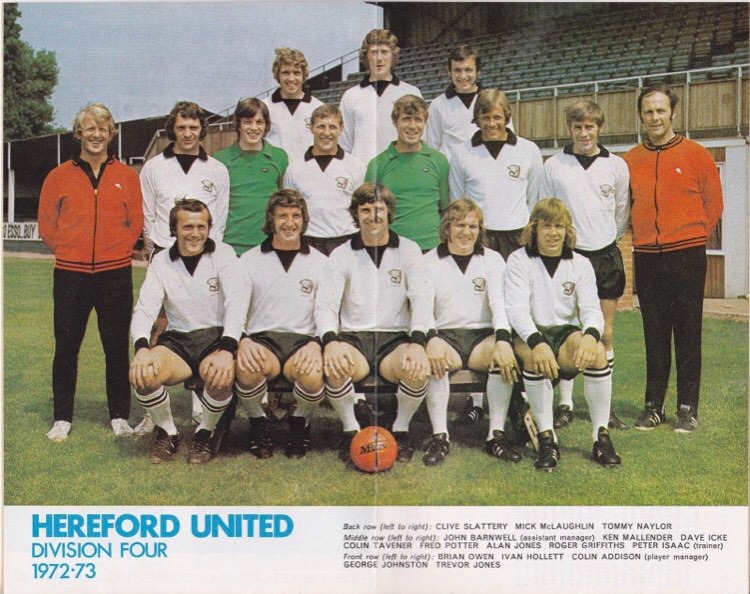
Icke continues “We used to train at Credenhill they had fantastic facilities, my arthritis hadn’t gone away, every morning of that season in training I was in agony. I made excuses for my limping, like I had a blister, or a bit of cramp, on a winter’s morning it would be very cold, it took 30 minutes for my joints to warm up”
Icke would never finish on the losing side in a match at Edgar Street.
“During the games the adrenalin got me through, I knew my body was rebelling but I wasn’t going to give up as I didn’t want to lose my place in the team, we were on a roll and I played through the season, we were successful, we just clung on to go up, the defence won us promotion towards the end as we had stopped scoring goals. I remember the centre half Billy Tucker scoring a last minute winner in a game near the end of the season”
In the spring though the pain in my joints disappeared, I thought I had cracked it, this was fantastic, we beat Crewe 1-0 in the final game of the season to secure promotion, Newport County were really pushing us, David Jenkins scored the winner, the Crewe goalkeeper gifted us the goal as we probably wouldn’t have scored otherwise”
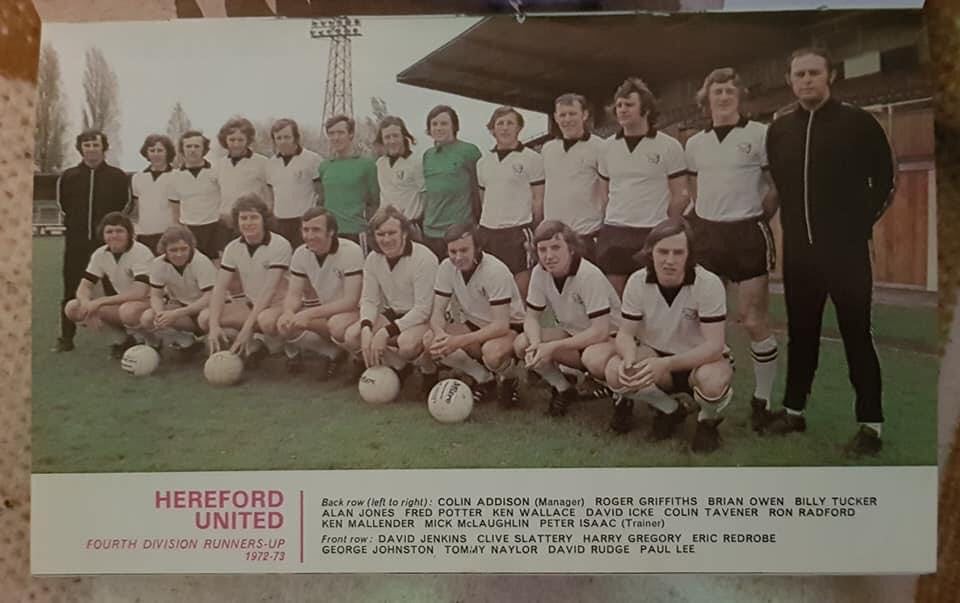
Tragedy would strike Icke In the close season ahead of the 1973-1974 season. He had been a part of two promotions and the club were looking forward to being a Division Three member (Now League One)
“To be a first team goalkeeper at the age of 21 was a major achievement, we were quite an old team looking back at the players, I was looking forward to the new season, one night I looked at my left knee, it wasn’t swollen for the first time since my Coventry City days, I thought this was brilliant. I woke up next morning and I couldn’t breathe or move, my body was solidified, I thought I was going to die, I managed to cough a breath, my body was frozen, I had no feeling in it. we had a house in Hereford on Whittern Way opposite the Whitehouse pub, my then wife Linda was carrying me to the toilet for the next few days, I went to bed as a footballer, but woke up never to play again”
Icke did attempt to try and play through the pain and gave pre-season a go “I tried to join in with the training, but I was really struggling, Colin Addison was a nice bloke, he asked to meet me in the office at Edgar Street after a session where I was really struggling, that morning I had gone to the hospital to be told by the doctor that I had definitely had to retire, I had battled arthritis all my career, but it was now so bad, I got the verdict, and Colin had this habit of not listening and replying before you had answered to his question, he was starting to give me a lecture on not trying in training and I’m trying to tell him not gonna play again, Colin wasn’t listening to me, it was really frustrating, but I finally got through to him”
Icke continued “It was in the local paper that I couldn’t play again. I got a call from Gary Newbon at ITV Central to ask if they could interview me, and they did a feature with me and a cricketer called Mike Hendrick, he was in the England team, it sounds harsh now, but the story was my sporting career ending, but his doing well. I looked around and thought this television environment is for me, so instead of feeling sorry for myself, I set a goal for myself to be a tv presenter, I wanted to go into journalism, radio, newspapers etc, one door had closed, another was about to open”
I asked Icke how Hereford United looked after him after he retired, his reply was quite stern “It still hurts now. I was only a kid, the secretary was Jim Finney, he was a famous referee and refereed in the 1966 World Cup, he called me in and said the club would look after me, they would give me a testimonial, but that didn’t happen, I was asked to sign this form, and I didn’t realise I was severing my contract, which meant that they stopped my wages immediately, which was really unfair, we had to sell the house in Whittern Way as we were going to move to the Midlands, we managed to sell it, but when we did, we had just £33 in the bank, the mortgage was £66 a month”
I left the club with a sour taste in my mouth, Frank Miles (Hereford Chairman) should have had a bit of compassion, especially after all I had achieved for the club, but you have to move on with life. I got a job in journalism, again thanks to John Camkin on a tiny weekly paper in Leicestershire called the Leicester Advertiser which the owners had as a tax loss, I say in my autobiography that the level of journalism wasn’t Watergate it was more Cow and Gate, I went round village shops and seeing the local vicar to get stories to write for the newspaper”
Icke struggled at first with not having the adulation of being a footballer “I found myself sitting in a parish hall meeting one afternoon, sat around an open gas stove, it was the time of the electricity cuts and it was freezing, I was sat there with my notebook, thinking life can change dramatically in the space of 12 months, as a year or so previously around 10,000 Hereford United fans would be singing to me “David Icke, David Icke” and now I was freezing in a Parish Hall in Leicester”
Icke did well in his new career “I progressed through the ranks, I remember when I finished at Hereford, my goal at the time was to front Grandstand, It was presented by David Coleman, Frank Bough and Des Lynam, when I was a kid I wanted to be a goalkeeper, you had a 1 in 92 chance of playing in the Football League. I was now setting out to front a TV show which had about 3 people in the whole country who could present it. Some time later we were living in Buckinghamshire, I was driving in to present Grandstand and I was going down the M40 with tears down my face as I realised in the depths of despair when I retired from football, I was about to achieve my new dream”
I asked Icke if his animosity to Hereford continues now “No, no not at all, I have a picture of the 1972/1973 team on my wall which I can see when I’ve been speaking to you, it was a very long time ago and I have so many happy memories. I came back down in 2008 to watch them celebrate promotion to League One, I drove down with my children, as I wanted to show them the ground and where I used to play, it was great to see the club doing well. I was shocked to see them get liquidated later on, but I’m glad they are on the rise again, with this current pandemic its so hard for lower league clubs, they don’t have the television deals the Premier League has, how are they meant to survive with no crowds, so many of them will go to the wall unfortunately”
In 2021 Icke is a well known public figure across the globe “When I had to retire from Hereford United it gave me that belief not to go under as a person. It triggered in me the drive to always keep going and moving forward. I’ve had so much thrown at me the past 30 years that you learn to live with it, I’ve been recently silenced by social media and when I was on the Wogan show 30 years or so ago who would have thought that these big global companies are now in fear of people like me”
*Photos supplied by Ron Parrott, Peter Manders and the MH Archive

